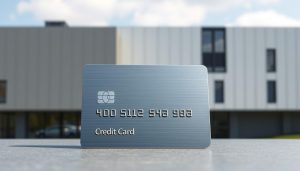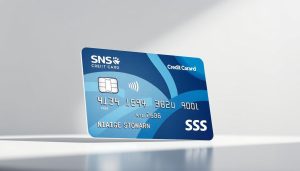Could a small plastic card simplify travel plans and online purchases while fitting local habits?
Many people in the Netherlands rely on debit and iDEAL for daily pay. A credit card still plays a key role for hotel bookings, car rentals, and extra purchase protection.
Visa and Mastercard are widely accepted at shops and web stores. American Express works at larger retailers and travel vendors but is less common.
Mid and premium products often include up to 365 days of purchase protection and added travel insurance. Non-euro spending usually carries a near 2% foreign transaction fee, which matters for expats and frequent travelers.
Most bank-branded options from ABN AMRO, ING, Rabobank, KNAB, ASN, and issuer ICS require a BKR check and proof of income. AMEX charge cards differ, needing full monthly payoff and higher income thresholds.
Why credit cards matter in the Netherlands today
In the Netherlands, a tucked-away plastic card can unlock smoother international bookings and stronger online protections. Daily payments still lean on debit cards and iDEAL, but a credit option proves useful for travel, larger online purchases, and certain merchant rules.
Visa and Mastercard are widely accepted across stores and webshops, which makes them practical for residents and internationals. American Express can add rewards and travel perks, yet smaller merchants may not take it.
Most banks issue a branded card to existing account holders; applicants usually need a bank account, a BKR check, and income proof. Decisions often arrive within five to ten working days.
Higher-tier products often include purchase protection and extra travel insurance. Non-euro transactions commonly carry near 2% fees, so this matters for people who shop or travel outside the eurozone.
For expats, a card eases signing up for subscriptions, booking cross-border travel, and handling security holds that debit solutions may not cover.
Benefits of credit cards Netherlands overview
A well-chosen card can bring extended protection and helpful travel cover. Many standard Dutch products include purchase protection for about 180 days, while gold and platinum tiers push that to 365 days.
Mid- and premium-level offerings often add supplementary travel insurance that covers delays, lost baggage, and emergency assistance. AMEX and ICS premium cards typically include broader travel perks such as lounge access and higher policy limits.
Holders should factor in rates and fees. Non-euro spending usually carries a foreign transaction fee near 2%, which affects total travel costs. For frequent travelers, the extra perks can outweigh annual charges.
Everyday convenience features matter too. Most cards support contactless pay and Apple Pay and come with fraud monitoring and clear statements to centralize spending. Comparing protection length, insurance scope, and overall cost helps people pick the right credit cards available for their needs.
Top credit card options compared for the Dutch market
This section lays out leading market options so readers can weigh fees, travel perks, and purchase protection. It compares bank-branded products, issuer tiers, and travel-focused choices.
ABN AMRO offers a low-fee option (€2.15/month) with 180-day purchase protection and a Gold variant (€4.45/month) that extends cover to 365 days and adds basic travel insurance. ING has budget models, with a standard card (€1.90/month) and a Platinum card (€4.35/month) that includes extra travel and car rental coverage.
ICS issues the Visa World and Mastercard ranges. The Visa World Card starts at €42.95/year with 180-day protection, while Gold and Platinum tiers raise protection and travel insurance limits. ICS processing takes about 5–10 working days for approvals.
For frequent flyers, american express options stand out. The american express platinum offers Privium Plus benefits, lounge access, and broad travel insurance for a higher fee. Flying Blue AMEX cards reward KLM travellers with miles and XP at varied annual costs.
Other choices include Rabobank’s low-cost RaboCard and ANWB’s lineup with extended purchase protection and added car rental cover. Note typical forex fees near 2% and compare annual charges against insurance and lounge perks before applying.
Who each card suits: expats, frequent flyers, and everyday Dutch credit users
Which card fits your lifestyle—an expat needing local access, a frequent flyer chasing lounge time, or a shopper wanting low fees?
Frequent flyers benefit most from american express Platinum and premium ICS Mastercard Black. They add lounge access, Schiphol Privium Plus perks, fast track, and broad travel insurance for longer trips.
KLM and Air France loyalists should consider Flying Blue american express tiers. Those cards help earn miles and XP that speed status progression and free flights.
Everyday users often pick ABN AMRO, ING, or Rabobank options. These bank-branded choices keep costs low while offering 180–365 day purchase protection and simple account integration.
Expats new to the country usually prefer bank-backed cards that work with an English portal and a local account. Applicants with modest credit start near a €1,000 limit and can ask for increases as income and tenure grow.
For online safety, prepaid or virtual cards provide spending control. Match a card to real travel frequency so annual fees and perks line up with actual use.
Costs that matter: annual fees, forex charges, and insurance value
Knowing how fees, interest, and insurance stack up helps pick the right tier for real use.
Pricing ranges from budget plans under €3 per month—like ABN AMRO (€2.15/month) and ING (€1.90/month)—to premium yearly rates such as ICS Platinum (€175/yr) or Mastercard Black (€225/yr). ANWB Gold sits near €46.95/year, while the ICS Visa World appears at €42.95/year.
A common foreign transaction rate is about 2% for non-euro purchases. Frequent travelers should weigh that cost against a low annual fee; extra forex charges can erase savings fast.
Purchase protection usually runs 180–365 days, and travel insurance levels differ from supplementary cover to full policies. Review policy exclusions and claim limits before relying on cover.
Monthly statements normally include a grace period. Paying the full balance avoids interest charges altogether. AMEX charge products require full payment each cycle and typically skip BKR registration, which affects budgeting and credit record rules.
Also watch ATM cash advance fees and stated interest rates for carried balances. Match card tier to real usage: skip premium perks if lounges and heavy travel are rare.
Eligibility and how to apply: income, BKR checks, and bank account requirements
To apply for a dutch credit card, applicants usually need Dutch residency registration, a BSN, and an active bank account. Issuers prefer customers who already hold an account with their banks to speed verification.
BKR checks are standard for revolving products. They review existing credit agreements and repayment history. AMEX charge cards typically do not register with BKR and must be paid in full every month, which suits disciplined users.
Income rules vary. Many bank and ICS options ask for roughly €1,000–€1,150 net per month. AMEX Gold/Green often require about €20,000 gross yearly, while AMEX Platinum and Flying Blue Platinum start near €30,000 gross.
Applications take about 5–10 working days. Issuers often request payslips, employment confirmation, or contractor paperwork. Freelancers and short-term contracts may face lower initial limits or extra document checks.
Expats should apply through a familiar bank to simplify ID and account checks. After approval, use issuer portals or apps—many offer English—to manage the card, view statements, and track income-linked limits.
💡 Choosing between Dutch banks for credit cards detailed overview
Smart usage tips for the Netherlands: acceptance, repayments, and alternatives
Carry a Visa or Mastercard for day-to-day spending; they are widely accepted at shops and webstores across the country.
Use American Express for travel bookings and larger merchants where it is taken, but keep a backup debit option for small cafés and local stalls.
Set up direct debit to pay the balance in full every month. Many residents choose this approach to avoid interest and simplify budgeting.
Watch the credit limit and only request an increase when income and steady spending justify a higher ceiling. That keeps fees and risk in check.
Leverage purchase protection for eligible purchases and learn the claim windows (usually 180–365 days). Check travel insurance exclusions on premium tiers before booking.
For routine domestic payments, prefer debit and iDEAL. For controlled online spending, try a prepaid or virtual option such as Openbank’s eCommerce Card, which can cut FX fees.
Your next step toward the right Dutch credit card
Narrow the shortlist by comparing monthly fees, travel insurance, and where each card is accepted. For elite travel perks, american express platinum (around €65 per month) suits those who value lounge access and strong travel cover.
Frequent KLM flyers should check flying blue tiers for miles and XP. Residents who want low per month pricing can start with abn amro or amro credit options from €2.15 per month.
Choose a visa world or world card from ICS for wide acceptance and extended protection. Confirm income thresholds (€20,000–€30,000 gross for some american express products), foreign transaction fees (~2%), and required documents (BSN, proof of income, Dutch bank account). Expect about 5–10 working days for processing and set a realistic limit to avoid interest.




